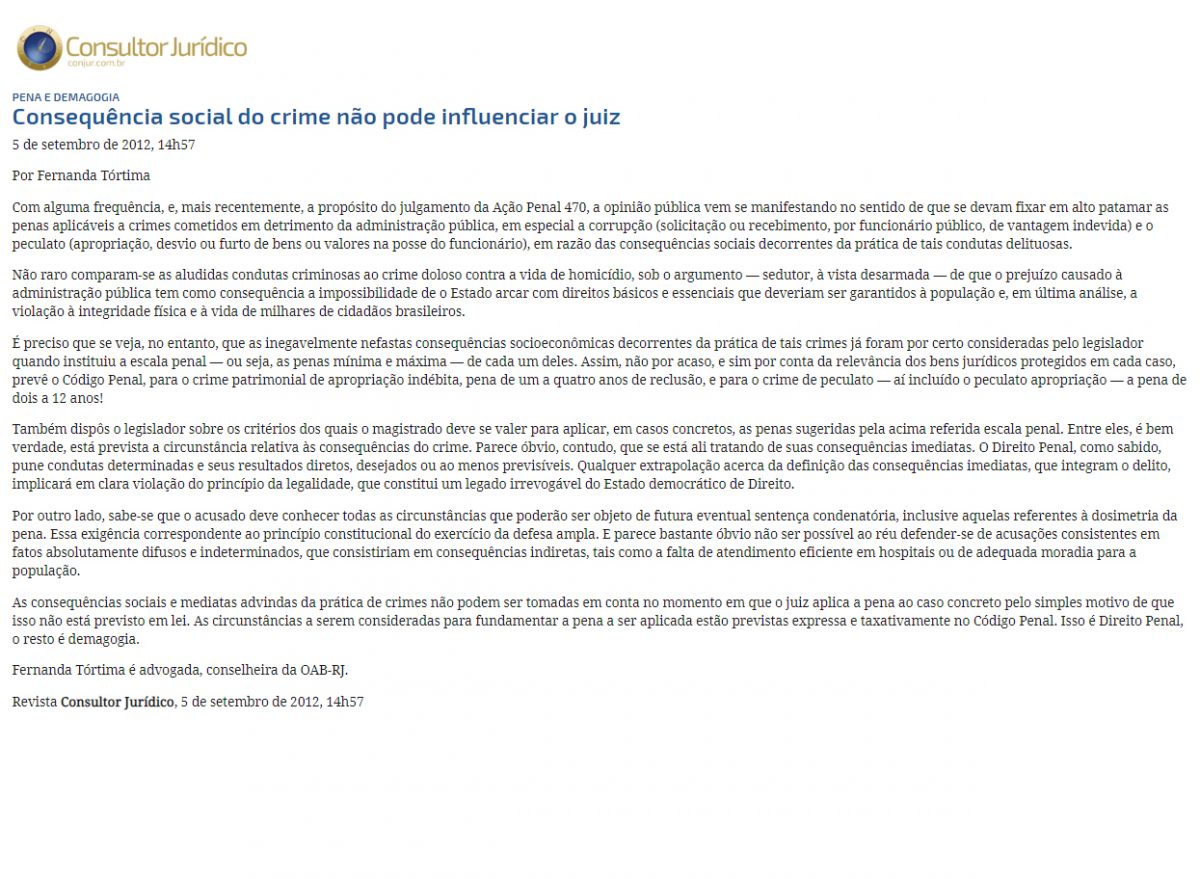Frequently, and more recently in the context of the trial of Criminal Action 470, public opinion has argued that sentences for crimes against public administration—especially corruption (solicitation or receipt of undue advantages by public officials) and embezzlement (misappropriation, diversion, or theft of assets or funds in the possession of a public official)—should be set at high levels due to the social consequences of such criminal conduct.
Such offenses are often compared to intentional crimes against life, such as homicide, with the seemingly compelling argument that the harm caused to public administration results in the State’s inability to guarantee basic and essential rights for the population, ultimately infringing upon the physical integrity and lives of thousands of Brazilian citizens.
However, it is important to recognize that the undeniably harmful socio-economic consequences resulting from these crimes have already been considered by the legislature when establishing the sentencing range—the minimum and maximum penalties—for each offense. It is no coincidence, but rather due to the importance of the legal interests protected in each case, that the Penal Code prescribes a penalty of one to four years of imprisonment for misappropriation, a property crime, and two to twelve years for embezzlement, including embezzlement by misappropriation.
Additionally, the legislature has outlined the criteria judges must use to impose penalties in specific cases within the established sentencing range. Among these criteria is the circumstance relating to the consequences of the crime. However, it seems evident that this provision pertains to the immediate consequences of the crime. Criminal law, as is well known, punishes specific conduct and its direct, intended, or at least foreseeable results. Any extrapolation regarding the definition of immediate consequences, which are integral to the offense, would clearly violate the principle of legality, an irrevocable pillar of the democratic rule of law.
Furthermore, it is established that the defendant must be aware of all circumstances that may be considered in a potential sentencing decision, including those related to sentencing guidelines. This requirement aligns with the constitutional principle of the right to a full defense. It is evident that a defendant cannot defend themselves against accusations based on vague and indeterminate facts, such as claims about the lack of efficient hospital services or adequate housing for the population.
The social and indirect consequences arising from the commission of crimes cannot be considered when a judge imposes a sentence in a specific case, simply because such considerations are not provided for by law. The circumstances to be taken into account when determining the sentence are expressly and exhaustively listed in the Penal Code. This is criminal law—anything else is demagoguery.
Fernanda Tórtima is a lawyer and a councilor for the Brazilian Bar Association (OAB-RJ).

